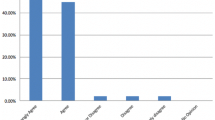Abstract
The ECB might seem to be the most independent central bank in the world. Its statutes were carefully designed to ensure independence and they are enshrined in an international treaty. Yet, while serving many governments may be a protection, it can also act as a constraint on policy decisions. This essay explains how the ECB has faced limits during the Eurozone crisis. First, it had to find ways to circumvent limitations to its essential function of lender in last resort to both banks and governments. Second, the procedure to appoint members of the Executive Board is open to political interferences. Finally, it is not well protected from fiscal dominance.

Source AMECO on line, European Commission
Similar content being viewed by others
Notes
The classic indication of misleading action is the April 2011 increase in the policy rate, followed by another hike in June, only to be reversed in December.
The ECB did not publish the minutes of its policy setting meeting until late 2015. It is impossible, therefore to know how the debates evolved as a consequence of the changeover of the Executive Board.
Another issue is the gender composition of the Executive Board. So far, only one woman has served at any point of time but pressure is mounting, rightly so, which makes the choice of candidates even come constrained.
This assertion is developed in Wyplosz (2013).
References
Eichengreen, B., & Wyplosz, C. (2016). How the euro crisis was successfully resolved. In R. Baldwin & F. Giavazzi (Eds.), How to fix Europe’s monetary union, rebooting Europe (p. 2016). London, UK: CEPR.
Farhi, E., & Tirole, J. (2018). Deadly embrace: Sovereign and financial balance sheets doom loops. The Review of Economic Studies, 85(3), 1781–1823.
Wyplosz, C. (2013). Europe’s quest for fiscal discipline. European Economy Economic Papers 498.
Author information
Authors and Affiliations
Corresponding author
About this article
Cite this article
Wyplosz, C. Limits to the independence of the ECB. Rev World Econ 155, 35–41 (2019). https://doi.org/10.1007/s10290-018-0328-2
Published:
Issue Date:
DOI: https://doi.org/10.1007/s10290-018-0328-2




